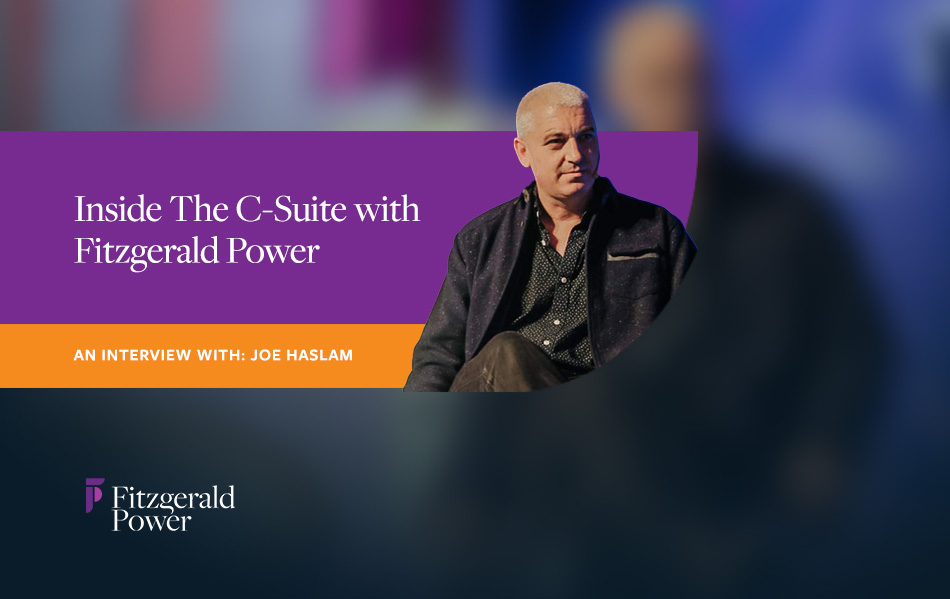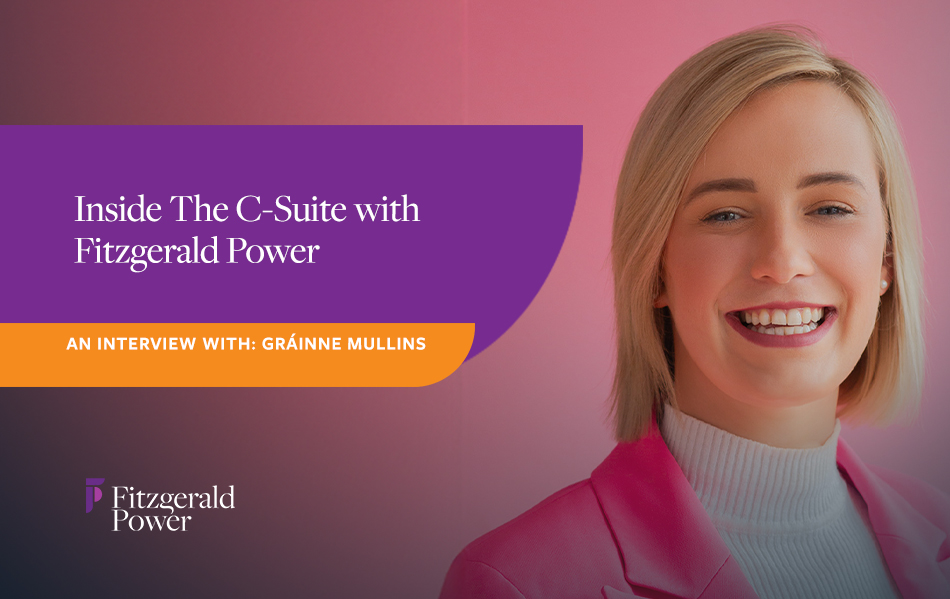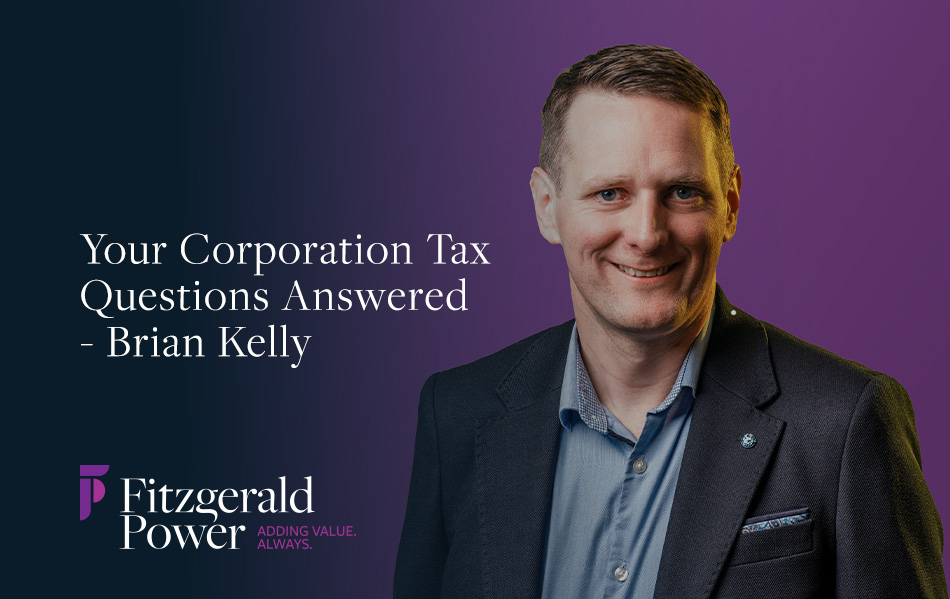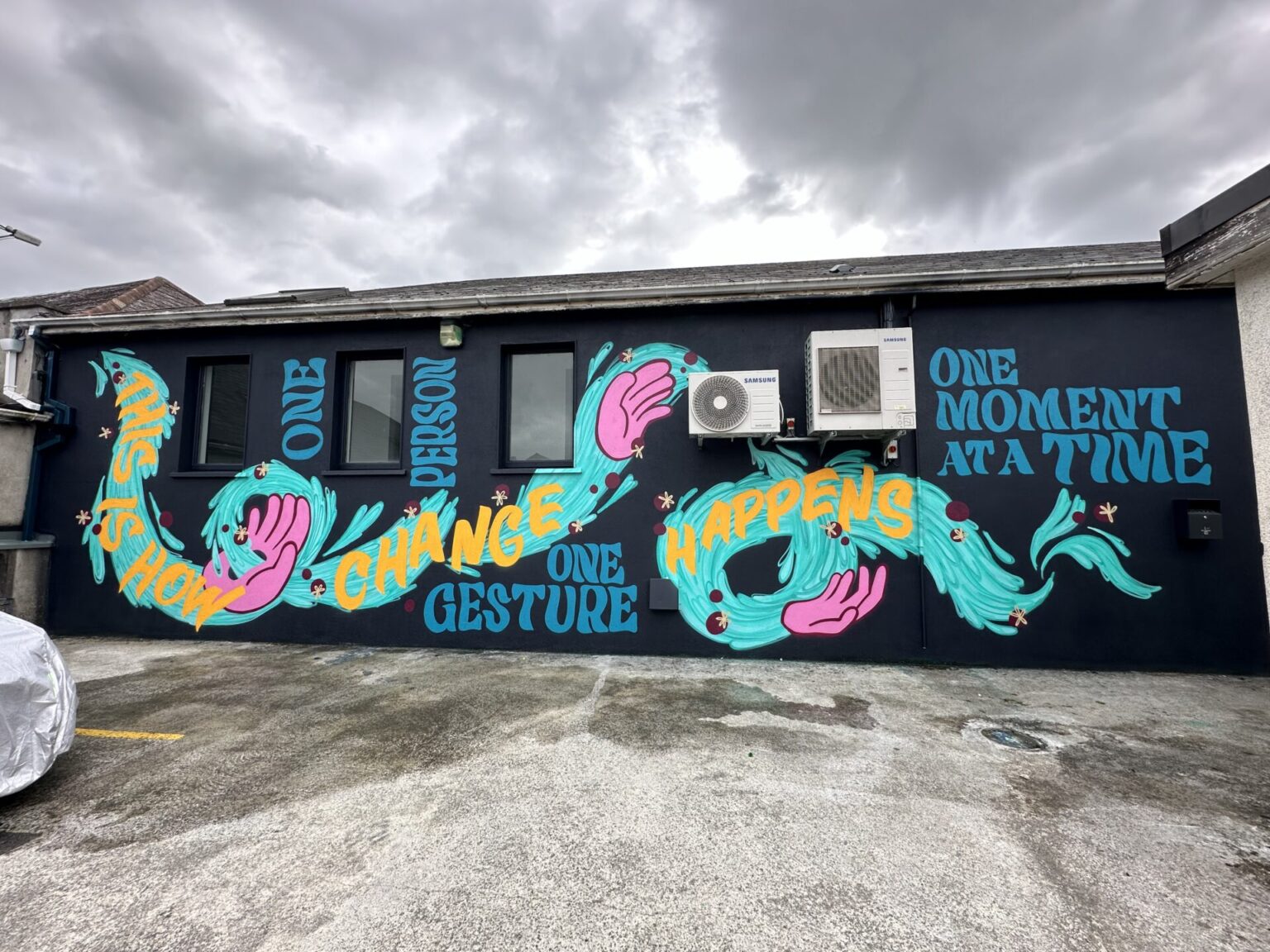“Original thinking is hard, but it’s the only thing if you want to build a moat.”
In Fitzgerald Power’s interview series, we’re speaking to people with different perspectives who feel they can offer more to the workplace, from the water cooler all the way up to the C-Suite.
When Professor Joe Haslam, the Executive Director of the Owners Scaleup Program at the IE Business School in Madrid, was in his teens, he found his first gap in the market. “Despite living only 7km away, my father sent me to St. Munchin´s College as a boarder,” he says. “Weekends could be depressing so I organised with a takeaway to bring fast food via a taxi from Limerick City out to Corbally. For a while, I got away with it, but the priests put a stop to it as too many people were not eating the dinner as a result. This was in 1987, food delivery would take thirty years to come to the rest of the world!”
A co-founder, professor (something he resisted as his parents were university professors), investor, board member, coach, speaker and parent, Haslam was born in Ireland but left for Spain two decades ago to study business. “Like many teenage boys, I used to worship from a distance the Spanish students who came to Ireland every summer,” he smiles. “And I remember watching Seve Ballesteros win the 1985 Carroll’s Irish Open and thinking Spain must be the coolest place imaginable. The real reason I went is that Spain has three of the best Business Schools in Europe. I applied to two of them and got into one.” At IE Business School in Madrid (which was named the #3 Business School in Europe by the Financial Times in 2017 and #9 globally by The QS Global MBA Rankings of 2019), Haslam is the Executive Director of the Owners Scaleup Program (OSP) which is a two-week Exec Ed program designed for startups who want to scale. “My main job is to give sessions on how to scale companies at IE University and IE Business School,” he says. “I teach in the BBA Program (age 18-22), the MIM Program (age 22-28), the MBA (age 28-35) and the Executive MBA Program (age 35+). Mostly in English but also in Spanish. The Owners Scaleup Program, where I am the Executive Director, is a special program designed for startups and SMEs who want to scale. Scaling means transitioning from a linear business model where you grow by the same amount to an exponential one where you double in size. It runs online starting each June and then finishes with a week in Madrid each October.” He also teaches programs for other business schools, including Queens University Belfast, the American University of Beirut, Brown University in Providence, Rhode Island and the NYU Stern School of Business in New York. “Honestly, in my work, you’re just trying to get people to believe in themselves,” he smiles. “And believe that they have value. You can talk about the five Ps or 7 Cs all you like, but at the end of the day, you want to be able to have the confidence to speak up in meetings and introduce yourself in commercial settings.”
He does this by his own words, trying and failing – something he encourages all the time. “Failure is just another word for experimentation,” Haslam says. “Startups should run experiments that are likely to fail, not ones that are likely to succeed. Out of 100 experiments, 97 should fail – but the three that succeed should be golden. People think an experiment is to try and see whether something will work or not. That’s not true at all. Experiments are done to validate what you think is going to happen against what actually does – because the one time something you expect to happen doesn’t happen, that’s what’s really interesting. And it turns out in many cases that people have been looking at something completely wrong all the time. People thought men would never watch women play sport – now the Spanish Ladies Football Team is selling out arenas.”
Build failure into your workflow, that’s what Haslam suggests. “And then when it does happen, or when it doesn’t happen, you’re ready for it.” It’s a mantra he has picked up from many years of entrepreneurship; including his years as chairman and co–founder of Hot Hotels – previously Europe´s leading last-minute, mobile-only, hotel room booking app – and as one of the founding team of Marrakech, a Dublin-based e-procurement company that raised over $75 million in Venture Capital and scaled to over 250 people. Today, along with his lecturing work, Haslam also coaches private clients. “I mainly work with entrepreneurs who have had an exit, to try to find equilibrium in their lives. It is just a fact that the skills that enable many people to be successful make it hard for them to transition to anything else.”
Scaling a business has always been challenging, and learning from failures can feel like an expensive habit. It can also take different forms, including expanding services and products, increasing resources such as personnel or funding, and enhancing marketing efforts. Each option requires careful planning and implementation to achieve success. “Verne Harnish, an author who should be much better known than he is, talks about the four pillars for Scaling Up Your Business: People, Strategy, Execution, and Cash. My methodology is based on Purpose, Product, Process and People, but it is not that different. The Scaleup Paradox is that scaling is counterintuitive. A lot of what you think you should d,o you should do the opposite. So, you know, in a startup, you would think ‘Well, we’re small, so I shouldn’t need to do much work,’ whereas the opposite is needed. Almost everything you think about scaling is the opposite. I mean, I tell people, it will probably take me five minutes to explain to you what you need to know – but it will be like a year before you believe what I’m telling you.
“My advice to scaling companies is to find the very best people that you can and build a supportive environment around, work on hard problems, not easy ones and avoid shortcuts. Get your hands dirty and read the source documentation. Oh, and surround yourself with positive, optimistic people. It really does make a difference.”
It begs the question, will Artificial Intelligence (AI) provide more help or hindrance for start-ups? Though many are worried about its boundaries, AI has become a powerful player in the startup world. Haslam thinks of it like this: “Artificial Intelligence is one of many exponential technologies, and every startup should be using at least one. It comes down to a battle between innovation and distribution. If the startup gets distribution before the incumbent gets innovation, then the startup will win. When I interviewed Sam Altman at IE University in May, he told me that he expected to see billion-dollar companies with just one employee.”
We close our conversation by way of Haslam’s many mantras – “Speed of reply is an important indicator. Reply within five minutes if you can, “You must deliver value, you must pull your weight,” – but the one he stands most by is: Follow the current trend instead of the next one. That’s what’ll save your business. “Peter Thiel wrote in his book, Zero to One: Notes on Start Ups, or How to Build the Future: ‘The single most powerful pattern I have noticed is that successful people find value in unexpected places, and they do this by thinking about business from first principles instead of formulas. “Original thinking is hard, but it’s the only thing if you want to build a moat.”
For more information on Joe, as well as his thoughts on scaling, check out his LinkedIn page here.





